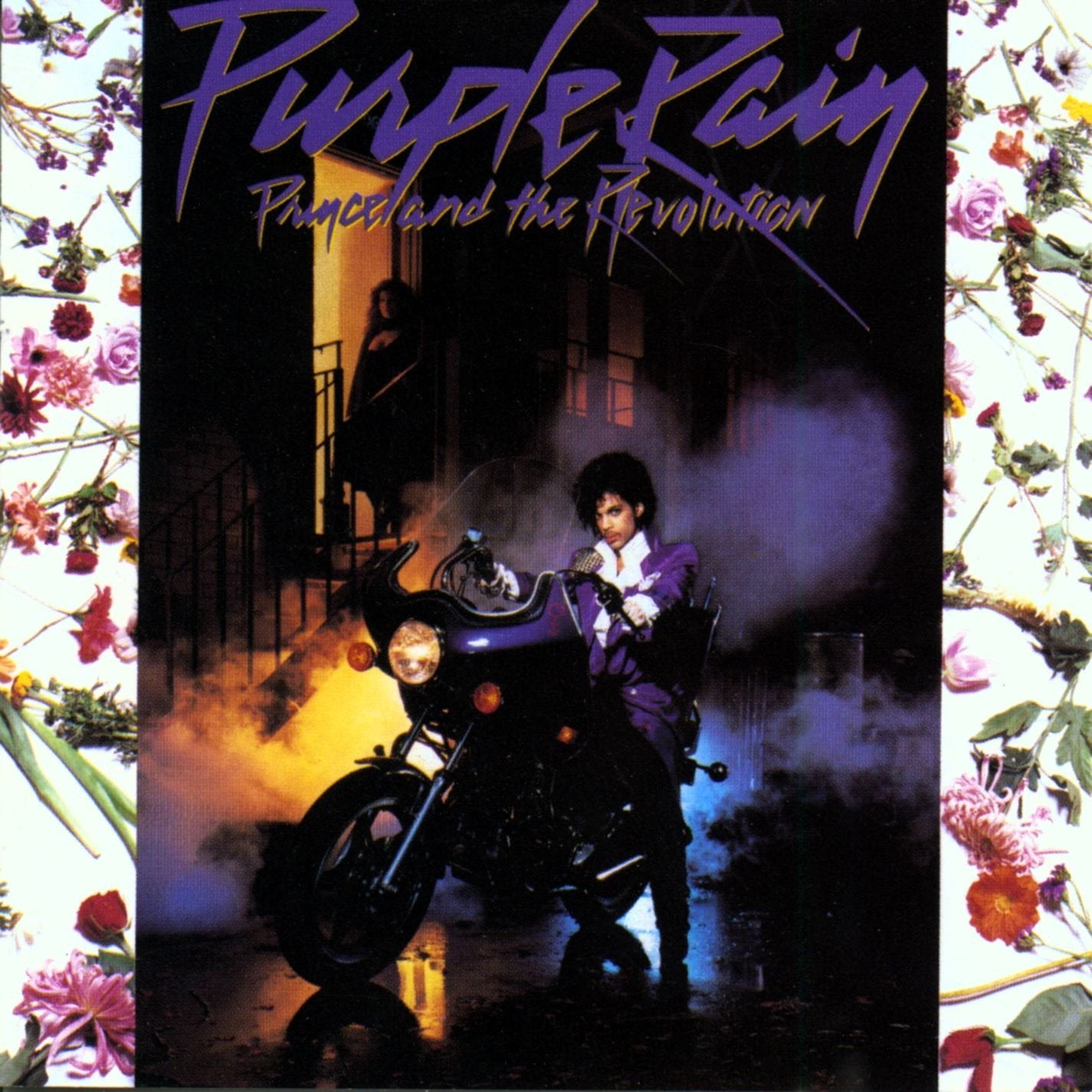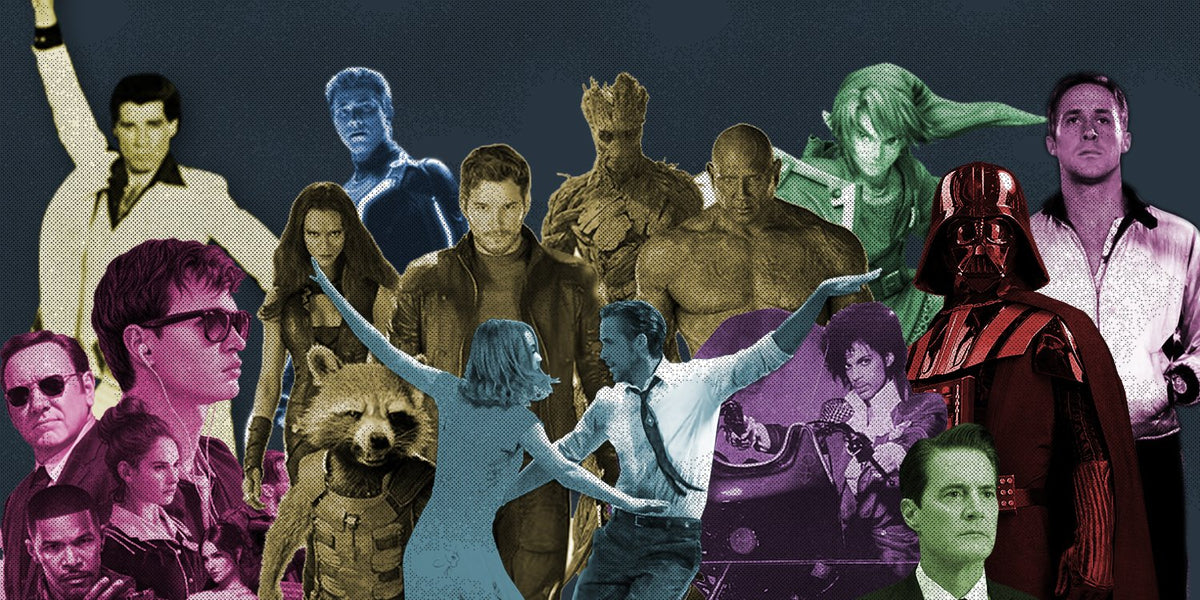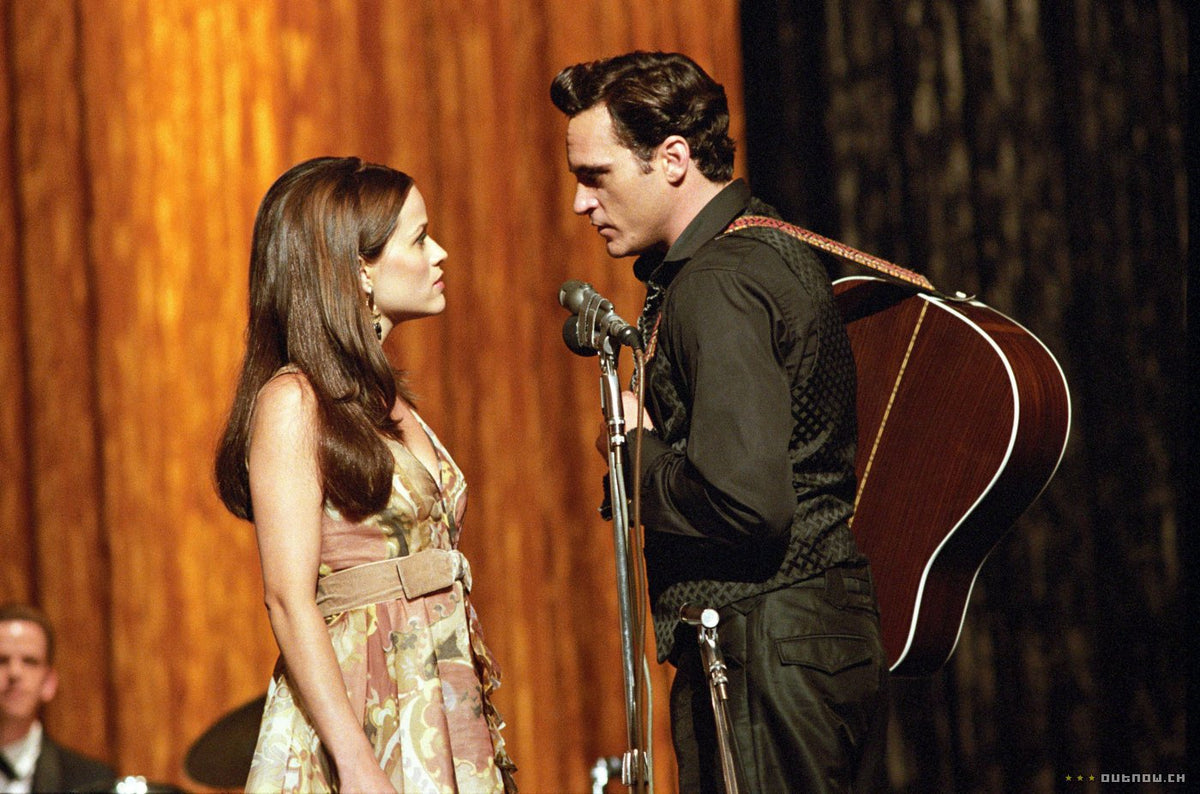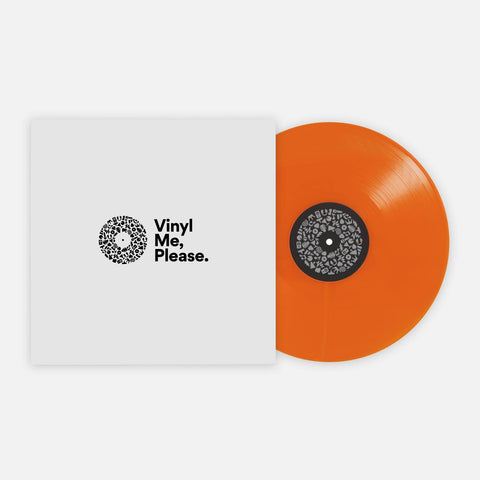The almighty soundtrack is a very special kind of album. When we think of great soundtracks we think of how well a song fits a particular scene or how the score was an integral component to the story, successfully manipulating the emotions of the audience. I like to think of the soundtrack as the mixtape for the movie. Like any mixtape put together for a significant other, the song selection reveals things about the curator. In a soundtrack’s case, it's the filmmakers or music supervisor, and what the curator wants you to think about. The selections provide insight into the characters or scene, more than any amount of great acting and dialogue can tell you. A well-placed score cue lets you know that it’s time to be scared or nervous. A song can get the adrenaline going before the chase begins. It can be the punchline to a comedic scene. Whatever is happening on screen, it’s all there in music.
There are a TON of great soundtracks out there. Some soundtracks transcend the medium and are the best of all time no matter the format. There are also a lot of fantastic soundtracks that get overlooked for one reason or another. Without further ado, here are the 10 best soundtracks to own on vinyl.

Pretty in Pink
In a decade full of awesome best-selling soundtracks Pretty in Pink (1986) perfectly encapsulates what a lot of us remember most about the '80s: high school movies and cool music. The soundtrack has artists like New Order, the Smiths, Orchestral Manoeuvres in the Dark (OMD), INXS, Echo & The Bunnymen, etc., a veritable who’s who of artists still considered among the pinnacle of alternative/new wave music. The film is about a working-class girl, Andie, who falls for a rich guy, Blane, and the ensuing fall-out among their friends.
Helping this album’s staying power is how well the music fits with what’s seen in the film. Among these is OMD’s “If You Leave,” a radio hit and the LP’s opener, filled with shiny synths, longing lyrics, and paired with a memorable film ending. It’s an emotional high followed by a cool remix of Suzanne Vega’s “Left of Center,” a kind of theme for Andie’s outsiderness. The album closes with the heartbreaking “Please Please Please Let Me Get What I Want” by The Smiths, heard in the film softly playing in the background with Duckie sitting alone in his room. Rather than reliving the so-called happy ending of the movie we are reminded about Duckie’s unrequited love and how some people don’t always get the happy ending they originally wanted. In this way, the soundtrack does more than just compile some of the music heard in the film. It is the perfect mixtape of love and life and winning and losing.

Black Swan
Black Swan, directed by Darren Aronofsky, is a dark, twisted film about Nina (played to perfection by Natalie Portman), a tightly wound young woman offered the chance to finally be the star ballerina in Swan Lake. Already under immense stress from her own perfectionist tendencies and an over-protective mother, the role takes her beyond the breaking point. Clint Mansell, who has scored all of Aronofsky’s feature films, may not have been eligible to be nominated for an Oscar for his outstanding score, but if there were an award for best-adapted film score he’d surely win hands down. The movie is about a Swan Lake production, so of course it features Tchaikovsky’s gorgeous ballet score. Mansell takes this music and seamlessly blends in an incredible amount of original cues and passages, creating something beautiful and nightmarish, familiar and original, enhancing the film’s story of this ballerina's descent into madness.

Superfly
Curtis Mayfield was already an established recording star from his work with the Impressions as well as his own solo work when he composed and performed the soundtrack for the 1972 film, Superfly. Known for his socially conscious lyrics, the soundtrack provides a counterpoint to the film’s plot which, along with other blaxpoitation films of its time, seemed to glorify the criminal lifestyle. Directed by Gordon Parks (director of Shaft), the film stars Ron O’Neal as a drug dealer looking to leave the business after he earns enough money to live the lifestyle he wants on the straight and narrow.
While we watch O’Neal’s character being established as a powerful man in his chosen trade, rich and successful with the ladies, Mayfield’s lyrics challenge the attractiveness of the lifestyle. Songs like “Pusherman” speak to how the drug dealers oppress those dependent on them. Hit song “Freddie’s Dead” tells the story of Freddie, an addict pushed into dealing to pay off his debts. Mostly instrumental versions of these songs are heard in the film so the lyrical impact isn’t really heard until you play the album. Ending on the terrific “Superfly” you will promptly flip the record to start it again.

Saturday Night Fever
The Saturday Night Fever soundtrack went platinum only two months after its release in 1977, stayed on the charts for two years, is one of the best-selling albums of all time, and was the first soundtrack to win a Grammy for Album of the Year. So yeah, the album was a monster when released. Six singles from the soundtrack also topped the charts making the music inescapable.
There is no denying the pop genius of the Bee Gees with hit songs like, “Stayin’ Alive,” “How Deep Is Your Love,” “Night Fever,” “More Than a Woman” and “You Should Be Dancing.” At the time they were a band in flux, their sound just beginning to evolve to disco/pop and it was perfect timing when they were asked to contribute songs to the film. They also wrote the Yvonne Elliman track, “If I Can’t Have You,” another hit. The film is a coming-of-age tale about Tony (John Travolta), a young man from Brooklyn who despises his job, lives with his parents, and only gets to shine when he and his friends go to a disco club on Saturday nights where he is king of the dancefloor. The music symbolizes the glitter and glow of the better life that Tony wants and is a real banger. From the opening notes of the Bee Gees’ “Stayin’ Alive” to the 10-plus minute epic closer “Disco Inferno” by the Trammps, you will be itching to grab a partner, get on the dancefloor and burn the mother down.

Tron: Legacy
Daft Punk and Tron. It’s a combination made in heaven. Tron: Legacy (2010) is a sequel to 1982’s Tron, continuing the story of Kevin Flynn who, after being downloaded into his former employer’s mainframe, discovers that computer programs exist as living beings in cyberspace. In the sequel, we discover that Flynn went missing several years after the events of Tron, and his son Sam is prompted to investigate a strange message, finding himself transported to a virtual world his father created.
The vinyl version is awesome for two reasons: 1) it’s freaking TRON and 2) you get seven bonus tracks that were exclusive to different retailers and/or CD versions of the score. So you get the score and these bonus tracks all in one physical package. It is a true film score, full of heroic and dark themes. Daft Punk challenged themselves by combining orchestral and electronic elements, the orchestral highlighting the grandeur of the virtual reality world of the film and the electronic reminding us of the technology involved. Listening to this album on its own is like traveling through an ambient world full of lightscapes and a pulsating abyss and you won’t want to come back.

The Mack
The Mack soundtrack was released in 1973 on Motown Records. It was composed and performed by Willie Hutch who up to that point had done some solo work for another label before moving to Motown where he wrote and co-wrote songs for artists like the Jackson 5, Marvin Gaye and others before releasing his own albums for Motown. The film co-starred Max Julien, Richard Pryor and Roger Mosley (T.C. from Magnum P.I.) and while the film suffers from an uneven script, it is elevated by Hutch’s soundtrack which continues to hold up as a terrific collection of soul and R&B numbers.
The LP starts strong with “Vampin” and “Theme of the Mack” setting up the story about a recently released con who sets out to become the biggest, baddest pimp in the city. As a Motown artist, Hutch gives the album that trademark ‘70s Motown sound with some nice beats and smooth vocals. Hutch then it slows down with “I Choose You,” a sultry R&B number (which would become the foundation for the seminal "Intl Players Anthem" by UGK and Outkast). Side 2 tracks like “Slick” and “Brother’s Gonna Work It Out” were hits on the R&B charts at the time, the latter being sampled and covered by many artists such as Public Enemy, The Chemical Brothers, and Chance the Rapper and it’s an outstanding album closer. In the pantheon of '70s blaxploitation films, The Mack may not be as well-remembered but its soundtrack deserves to be.

City of God
City of God is a 2002 crime drama about young men growing up in the City of God suburb of Rio de Janeiro told mainly from the point of view of Rocket, an aspiring photographer living in the slum but not wanting the criminal life. It is set in the '60s through the early '80s showing the growth of the drug gangs in the Rio slums, neither flinching away nor glorifying the violence of the life depicted. Nominated and winning many film awards, it is one of the more hard-hitting gangster movies of the last 15 years.
Along with original music composed and performed by Antônio Pinto and Ed Côrtez are Brazilian samba, funk, and psychedelic tunes, taking us through the different time periods of the film. More traditional samba is represented with songs by artist Cartola and Wilson Simonal’s “Nem vem que não tem.” In the '70s the samba has more funk influences in tracks like “Na rua, na chura, na fazenda” by Hyldon, Raul Seixas’ “Metamorfose Ambulante” and Tim Maia’s “No caminho do bem.” Pinto and Côrtez take these influences and darken them for their pieces throughout the film. The music is visceral and brings the viewer into Rocket’s world where corruption is everywhere and compromises need to be made in order to survive.

Rushmore
Rushmore (1998) is a coming-of-age film about a teenage boy, Max, as he navigates and controls his world through his many extracurricular activities, makes friends with a sad businessman (Bill Murray) and falls for his private school’s first-grade teacher (Olivia Williams). For those unfamiliar with Wes Anderson's older films, it was Rushmore, his second feature film, which first showed us what has become his signature style, introducing actor Jason Schwartzman (Max) and breathing new life into Bill Murray’s career. It also gave us one of the best soundtracks to come out of the '90s, combining whimsy, folk and rock music to match perfectly within the film’s story.
The music consists of mainly '60s British Invasion artists like the Who (“A Quick One While He’s Away”) and the Kinks (“Nothing In This World Can Stop Me Worryin’ Bout That Girl”) as well as Cat Stevens (“Here Comes My Baby” and “The Wind”). The Creation’s “Making Time” heard at the beginning of the movie where we’re introduced to Max and his many clubs marks one of the most memorable character introductions in film and made this relatively unknown garage rock song forever connected with Rushmore. Mark Mothersbaugh composed the baroque-inspired score pieces and these whimsical interludes serve to highlight Max’s eccentricities and provide introspectiveness to the characters. It’s both a muscular and sensitive soundtrack which pairs well with this story of a self-involved teenager growing into manhood and learning to think of others.

La Planète Sauvage
1973’s La Planète Sauvage (aka Fantastic Planet), directed by René Laloux, is that weird animated beast that is both science-fiction social commentary and psychedelic drug film. The animation uses almost book-like illustrations with a stop-motion style that give it an original, other-worldly feel. On the planet Ygam live a gigantic blue humanoid species called Draags and humans, called Oms, who had long ago been brought from Earth by the Draags to live as pets, some of them living as animals in the wild. After his mother is killed by young Draags, an infant Om is found and taken care of by a young Draag girl and he grows up and learns about Draag culture and technology, eventually running away and passing this knowledge on to his fellow Oms where a fight for freedom ensues. Unique animation style plus an out-there story make this a striking film but then you add in the score and you have something completely unforgettable.
Composed by Alain Goraguer, a longtime collaborator of singer Serge Gainsbourg, the score is often described as Pink Floyd meets Shaft. This French pop, space-age funk masterpiece is full of mad beats and funky ‘wah wah’ effects and has been sampled by many artists over the years such as DJ Shadow, J Dilla, and Madlib (on Quasimoto’s The Unseen). The original pressing of this album is highly collectible and fortunately it was reissued in late 2014 so there are more reasonably priced copies out there.

Purple Rain
“Dearly beloved, we are gathered here today to get through this thing called life…” and with that opening line, one of the greatest movie soundtracks of all time begins. You can read more about what we had to say about Prince’s passing here so I will just focus on the music. Purple Rain was released in 1984, starring Prince in his film debut. It was a smash hit that summer, spawned singles that topped the charts around the world, and sold millions of copies becoming one of the best-selling soundtracks ever. It won two Grammy Awards and an Oscar for Best Original Song Score, the last time that award has been given.
Purple Rain was Prince’s sixth album coming after his hit, 1999. He was fairly well known to R&B audiences but Purple Rain was his crossover album, the one that proved to the world that he was a megastar. Prince expertly combined funk, rock, new wave, and R&B, showing off his incredible guitar shredding skills and holy shit, what an album. It kicks off with my personal favorite, “Let’s Go Crazy,” the fun string/synths in “Take Me With U,” the gorgeous slow burn of “The Beautiful Ones,” the funky rocker of “Computer Blue,” and the raunchy “Darling Nikki.” Then comes one of the best side 2’s of any record: “When Doves Cry,” “I Would Die 4 U,” “Baby I’m A Star” and the epic closer, “Purple Rain.”
Marcella Hemmeter is a freelance writer and adjunct professor living in Maryland by way of California. When she's not busy meeting deadlines she frequently laments the lack of tamalerias near her house.
Related Articles
Join the Club!
Join Now, Starting at $36Pages















